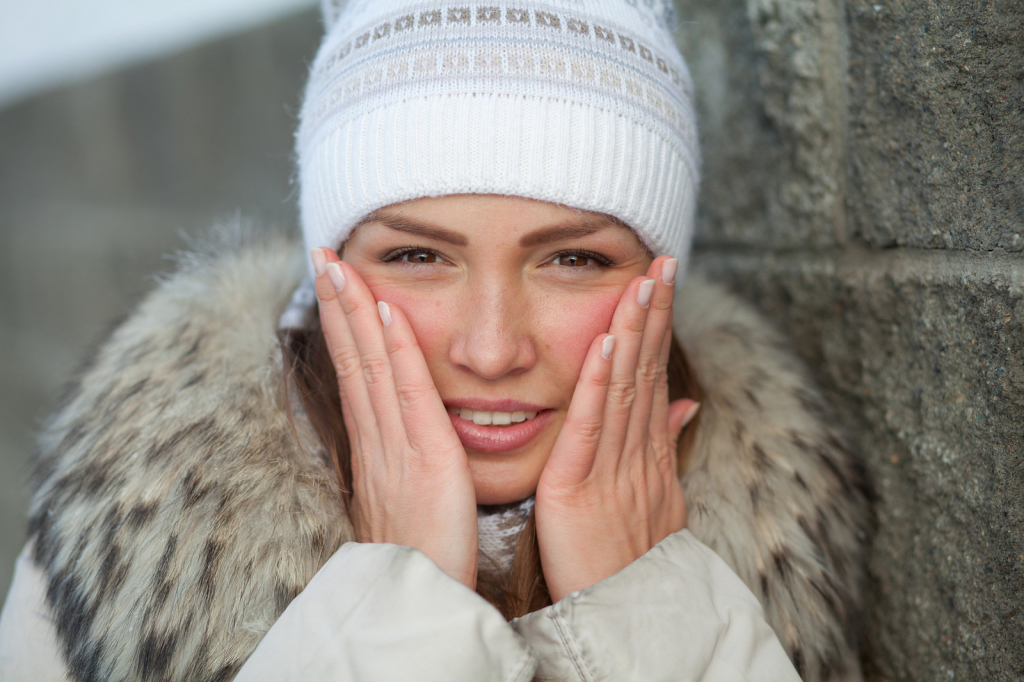There tends to be quite a bit of confusion about rosacea, which is sometimes mistaken for acne or eczema. Some people think rosacea is an infection, but it’s actually an inflammatory condition of the face, usually found on the cheeks and nose, and sometimes on the forehead and chin. This inflammation results in a flushed appearance.
Rosacea is characterized by:
- Redness of the skin, called erythema.
- Red bumps, called papules, and white bumps with pus inside them, called pustules.
- Swollen blood vessels, called Telangiectasia.
Four Common Causes of Rosacea Flare-Ups
Heat. Common sense leads us to automatically associate heat with summer, but winter flare-ups can occur near a hot fireplace or in hot showers, steam rooms or hot yoga sessions. When it’s cold outside, you could even find yourself getting hot under your winter coat, scarf and hat.
Spicy foods. Mexican, Thai and Cajun. Jalapenos and horseradish. Spicy barbecue sauce. Even foods with the mildest spiciness, like cinnamon, can cause a rosacea flare-up.
Alcohol. The holiday season is loaded with parties and family gatherings. If you ever noticed someone get flushed, it’s not because they’re an alcoholic. Redness is often the result of alcohol leading to dilation of blood vessels. As those blood vessels get bigger, the redness becomes more pronounced.
Stress. The holidays may be the most wonderful time of the year, but they’re also incredibly stressful. Throw holiday stress on top of a rough week at work or late nights taking care of sick kids, and you could experience a rosacea flare-up.
How to Protect Your Skin
It would be easy to tell you to completely avoid heat, spicy foods, alcohol and stress, but that wouldn’t be very realistic. However, it is realistic to look for rosacea flare-ups and take steps early to manage the condition.
For example, if you’re having a string of stressful days and notice that your skin is breaking up, see a dermatologist. A prescription for topical or oral medication can be very helpful. Just keep in mind that medication won’t cure rosacea, but it can help you manage the symptoms of rosacea.
People with rosacea tend to have very sensitive skin, so daily maintenance is encouraged. We recommend gentle, bland moisturizers and even sunscreens can be used to keep skin comfortable and avoid irritation from the sun.
If you’d like to cover up the redness of rosacea, speak with a makeup consultant. Green-tinted makeup is often a good choice because green counteracts red and can create a more natural appearance.
Most importantly, be careful about any product that you apply to your face to manage rosacea. If you’re unsure about something, make sure you see a dermatologist first.

Dr. R. Todd Plott is a board-certified dermatologist in Coppell, Keller, and Saginaw, TX. His specialization and professional interests include treating patients suffering with acne, identifying and solving complex skin conditions such as psoriasis, rosacea, atopic dermatitis, and identifying and treating all types of skin cancers. In his spare time, Dr. Plott enjoys cycling, traveling with his wife, and spending time with his children and new grandson.
Learn more about Dr. Plott.

